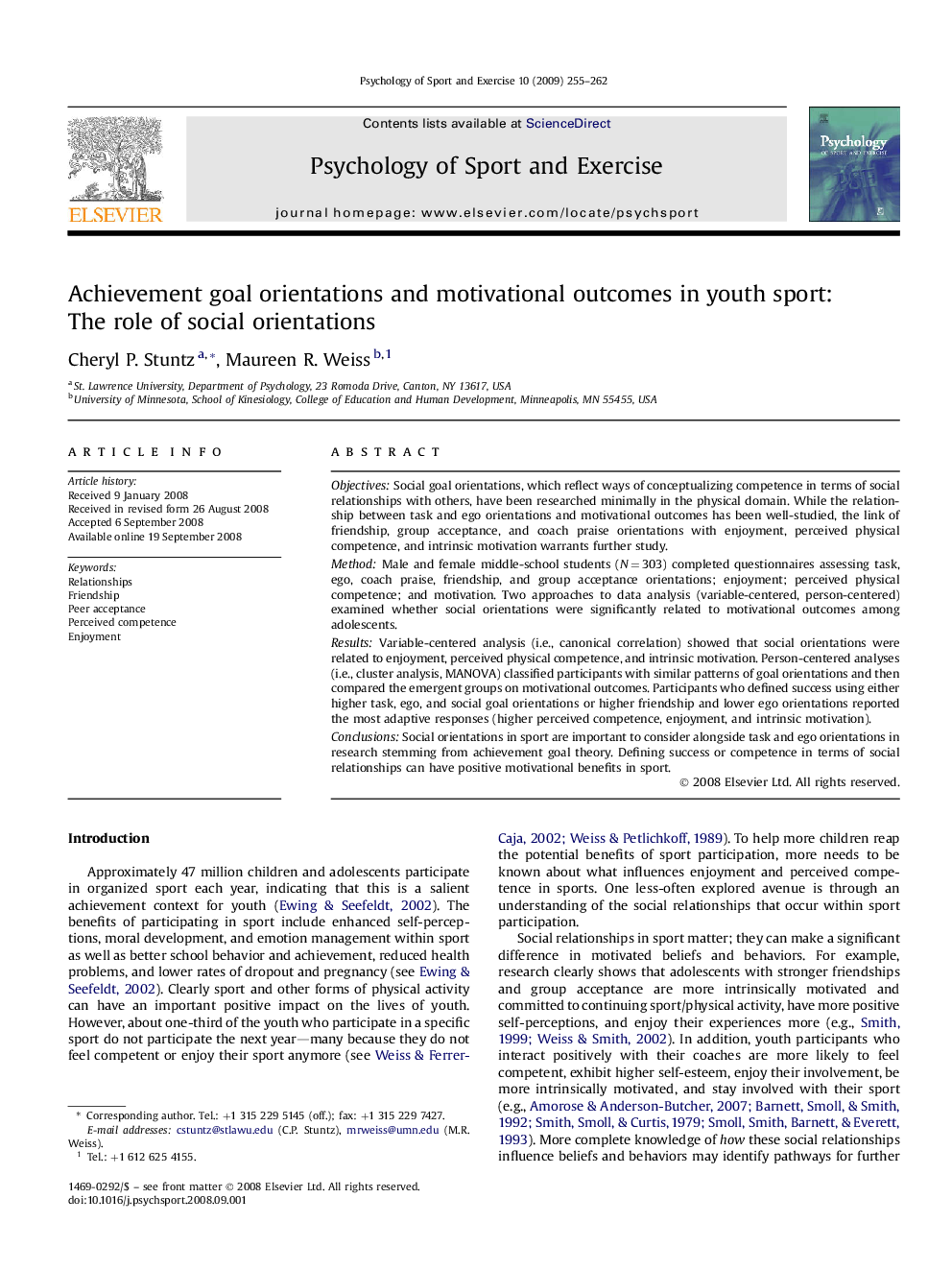| کد مقاله | کد نشریه | سال انتشار | مقاله انگلیسی | نسخه تمام متن |
|---|---|---|---|---|
| 894931 | 1472148 | 2009 | 8 صفحه PDF | دانلود رایگان |

ObjectivesSocial goal orientations, which reflect ways of conceptualizing competence in terms of social relationships with others, have been researched minimally in the physical domain. While the relationship between task and ego orientations and motivational outcomes has been well-studied, the link of friendship, group acceptance, and coach praise orientations with enjoyment, perceived physical competence, and intrinsic motivation warrants further study.MethodMale and female middle-school students (N = 303) completed questionnaires assessing task, ego, coach praise, friendship, and group acceptance orientations; enjoyment; perceived physical competence; and motivation. Two approaches to data analysis (variable-centered, person-centered) examined whether social orientations were significantly related to motivational outcomes among adolescents.ResultsVariable-centered analysis (i.e., canonical correlation) showed that social orientations were related to enjoyment, perceived physical competence, and intrinsic motivation. Person-centered analyses (i.e., cluster analysis, MANOVA) classified participants with similar patterns of goal orientations and then compared the emergent groups on motivational outcomes. Participants who defined success using either higher task, ego, and social goal orientations or higher friendship and lower ego orientations reported the most adaptive responses (higher perceived competence, enjoyment, and intrinsic motivation).ConclusionsSocial orientations in sport are important to consider alongside task and ego orientations in research stemming from achievement goal theory. Defining success or competence in terms of social relationships can have positive motivational benefits in sport.
Journal: Psychology of Sport and Exercise - Volume 10, Issue 2, February 2009, Pages 255–262